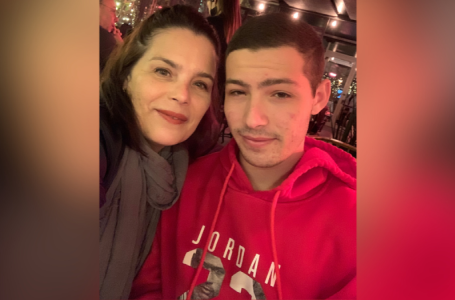Spanish retailer Mango to open 60 new U.S. stores as it looks to elevate the brand
Navigating Post-Accident Negotiations: Key Pitfalls to Avoid

Last Updated on:
When involved in a car accident, it’s important to understand how insurance adjusters operate and how to protect your legal rights. Insurance adjusters work for the insurance company, and they are trained to minimize claim payments. If you are pursuing claims for car damage, property loss, or injuries, those will be considered and paid by insurance companies. In all states, liability insurance is required, meaning most claims will be presented against the at-fault driver’s insurance policy. It’s essential to be cautious in all discussions with claims adjusters, as they are experts in finding ways to deny or reduce payments.
When dealing with your own insurance company, there is a contractual obligation to cooperate. Refusing to communicate isn’t an option, but you can remain careful while protecting your rights. In contrast, when communicating with the at-fault driver’s insurance company, there is no obligation to provide written or recorded statements. However, maintaining communication is crucial, as claims won’t be paid without it.
An experienced truck accident lawyer from Coffey Mcpharlin, emphasizes the importance of legal guidance when dealing with insurance companies. “Claims adjusters challenge every case, and they won’t simply volunteer full payment or help to find reasons to pay victims more money,” the attorney says. Speaking with a lawyer before engaging with adjusters can help accident victims avoid common traps. Most car accident lawyers offer free consultations, allowing victims to understand their rights and options without any financial obligation. “If the lawyer tries to charge for that time, hang up and try another firm,” the attorney advises.
Many people choose to handle their own car accident cases without legal representation. For those who do, here are the top ten things to avoid when speaking with an insurance adjuster after an auto accident:
Never admit fault or apologize for the accident. Doing so can be used against you in court. Rather than admitting fault, it’s better to provide a straightforward account of what happened. Determining liability is complex and involves various factors. Insurance companies handle this process, deciding fault and paying claims accordingly. In some states, being slightly at fault (even just 1%) can lead to a complete denial of your claim. If serious injuries are involved, consult a lawyer before speaking with any claims adjuster. “Protecting your legal rights early may help you avoid losing an otherwise valid and valuable personal injury case,” the attorney notes.
Requests for recorded statements can be a warning sign. “In most cases, this means they believe you were at least partially at fault,” explains the attorney. The goal is often to obtain a recorded admission that could damage your compensation rights. If presenting claims against another driver’s policy, there is no obligation to provide a recorded statement. Consulting with a lawyer before doing so ensures you present your story safely.
Stick to the facts. Avoid making speculative statements about the cause of the accident. Guessing or making uncertain statements can conflict with other evidence or police records. “Speculation can cause you to make statements that you may not agree with later,” warns the attorney.
Claims adjusters often try to minimize injury claims. It’s best to give a general overview of injuries rather than detailed information, especially if serious injuries are involved. “Many people don’t understand medical terminology and often understate their injuries,” says the attorney. Waiting until a comprehensive medical evaluation can help ensure that all injuries are properly documented, especially as some injuries might worsen over time. Early statements suggesting little or no injury could be used against you later.
Initial settlement offers, known as “cash outs,” are usually low and rarely reflect the true value of a claim. “Adjusters know that victims without a lawyer intend to settle, and they offer less money because they know the unrepresented victim does not intend to file suit or conduct a trial,” shares the attorney. Consulting a car accident lawyer can help evaluate whether an offer is fair and how to negotiate a better settlement.
Keep conversations with claims adjusters focused on essential details only. “Oversharing can lead to irrelevant details being recorded by the adjuster and used against you later,” cautions the attorney. Focus on answering questions briefly and directly.
Insurance adjusters may push for quick settlements. While this can be acceptable if there are no injuries, it’s generally a tactic to close cases before the full extent of injuries is known. “It is vitally important that you ensure all your injuries and damages are fully understood before agreeing to any settlement,” the attorney emphasizes.
Always read documents thoroughly before signing and seek legal advice if there are any uncertainties. “Legal documents can have lasting consequences, and it’s wise to have them reviewed by a lawyer if you have any questions,” advises the attorney.
Attorney-client communications are protected by confidentiality laws. “If you have a lawyer, you should not be talking with any claims adjusters! Your lawyer should handle all of those communications for you,” the attorney emphasizes. Even in conversations with friends or family, keeping discussions with your lawyer confidential is crucial to maintaining your case’s integrity.
Maintaining a calm and diplomatic approach can be beneficial. “Being nice and diplomatic actually helps your case,” notes the attorney. Adjusters may offer higher settlements if they believe a jury would sympathize with you. In contrast, hostility could lead to reduced offers and a more aggressive stance from the adjuster.
By avoiding these common mistakes and being careful in all dealings with insurance adjusters, individuals can protect their rights and potentially increase their compensation. Car accidents bring financial challenges and injuries, and it’s important to avoid complicating matters during the claims process. Seeking a free consultation with a legal professional can provide clarity and guidance tailored to the specific situation, especially in cases involving serious injuries and losses.










